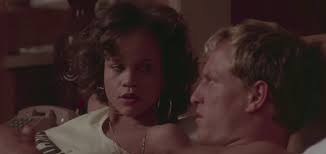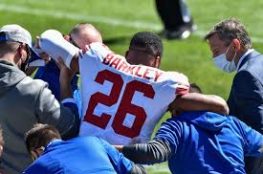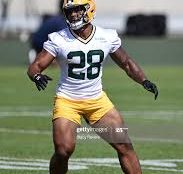A quote from the movie White Men Can’t Jump offers one of the great paradoxes in life. Gloria, played by Rosie Perez, is trying to educate her long-time boyfriend, Billy, played by Woody Harrelson, on an essential life-lesson. She preaches, “Sometimes when you win, you really lose. And sometimes when you lose, you really win. And sometimes when you win or lose, you actually tie. And sometimes when you tie, you actually win or lose.”
Billy was too focused on his own needs to comprehend Gloria’s point. It’s only toward the end of the movie when, having won at a basketball game but lost Gloria, that he repeats her words aloud with comprehension and appreciation for their wisdom.
In college, I used to be like Billy. I was focused on my immediate needs regardless of the broader impact and context. Truthfully, I’m not too hard on myself. Many university students and young adults are like that, only starting to gain a true appreciation that winning on a personal level might be a momentary gain but a monumental loss.
Indeed, for many people, it takes a life-jarring event to raise their awareness: the loss of a job, the alienation of a friend, or, in Billy’s case, being dumped by his girlfriend.
I consider myself fortunate: It only took The Devil for me to learn this lesson.
———
It was in 1995 that six of us sat in Jeremy’s dorm. The inaugural draft of what was to later become The House League was taking place. For some, this was our first fantasy league. For others, it was our second. We were all passionate football fans, mostly inexperienced at fantasy football, and cut-throat game players.
Five of us in that room were sophomores at the University of Wisconsin-Madison, having all lived in the same dorm our freshman year. We all lived in that dorm again in our second year at school. The sixth was one of the dorm’s resident directors our first year.
We were an unlikely septet, diverse ethnically, socio-economically, religiously, and geographically. Nonetheless, we were drawn together by one commonality: our love for playing board games. Risk was the game of choice when we were all present; when only four of us were available, we would deal cards for a merciless game of Hearts.
And “merciless” is the apt word. During one of our first ever games of Risk, one player was about to break LJ’s hold on Africa — a legal and indeed wise choice in the course of that game. LJ, however, threatened, “If you attack me, then I will make my entire game about killing you so you don’t win.” We all laughed; surely no one would be so reckless as to sacrifice his own game for a minor personal vendetta! After the inevitable attack on LJ’s territory, LJ, true to his vow, committed kamikaze to attack the opponent who had invaded LJ’s territory.
The same scenario played out with a different opponent in our subsequent game, with LJ again sabotaging his chance to win to attack an opponent who deigned to invade his secured continent. And our games became — and still are to this day, in our 25th year of our fantasy football league and during our annual weekend get-togethers! — no less merciless.
——–
Pride, ego, alpha status: These are often looked at as necessary values in our corporate world. They are what we need to get ahead and to stay ahead. Kill or be killed. Win or lose. Hunt or be hunted. The ends justify the means. Even as our corporate world is moving toward championing collaboration over competition, our political world remains as manipulative and combative as ever. Being the best will always have its place somewhere in life and in the world.
I think that most people, however, think like me: being the “best” isn’t about beating everyone else. It isn’t about knocking the other down so that you appear taller. It’s about putting into the world the values that you embody and hoping to improve our society — even just a little — alongside those who share your ethos. It’s about making friends, not outshining them. It’s about stepping back to give others space to thrive. It’s about being a little bit taller only when everyone around you is growing, too.
I might have learned this lesson later in life than most. My sense of victimhood and entitlement as a young adult led me to believe that I needed to be recognized above others for my accomplishments. My college friends, far more mature than I (at least in this regard!), embraced me nonetheless. Upon reflection, that probably the first time in life that I would come to appreciate that solidarity and thriving together is far more important than flying fastest but solo.
And then it made its appearance: The Devil.
——–
I remember the trade. I was offering a young, upstart WR who was over-performing for Herman Moore, having one of his career years in the mid-1990s. I was pressuring and cajoling, doing everything that I could to get the other guy to make the trade. Once he finally acquiesced, I then asked for a late-round pick in next year’s draft in return — in addition to receiving the best player in the deal in Moore. What?? he demanded with incredulity. But, I was intractable. He finally relinquished the pick — one of little value — frustrated and dismayed. I walked away gloating to myself about this victory: getting the best player AND sneaking in another albeit less valuable commodity. I knew that I was getting a sweet deal even without the pick. But, I wanted to win, to win big, to win more — and I did.
Or so I thought.
Some time the next season as I was engaged in conversation again with the owner who had traded me Moore the year before about another possible trade. Overhearing our trade negotiations, Jeremy — who had hosted our inaugural draft — warned our friend and my opponent, “Careful — you’re making a trade with The Devil.”
Our negotiations thus failed, I skulked to my room. What’s the big deal? I couldn’t understand. It’s just a game — and the goal is to win! This is how we play all games… With Jeremy’s admonishment to our friend replaying in my head, I began to consider previous trades that I had made. Not just for Moore, but others, too. I always wanted to win — and win big. To get that extra something — just because I could. To make sure that it was me — and oftentimes only me — who got ahead.
I might have won those individual trades, but I had certainly lost far more. My character, so important to me, had become one of hard-earned ill-repute when it came to partnership. It had become clear that I was a person who, in more than just fantasy football, was in it for me.
Don’t get me wrong: Overall, I was still a pretty good guy. Considerate, polite, and a loyal friend. But, I was not the kind of friend who cared about my friend’s needs as much as my own. And it was fantasy football that offered me that stunning self-realization.
——-
I can’t lie: The Devil is not fully gone. And it probably can never and will never be. Instinct and habit are omnipresent teases and unyielding foes. But, I’m a lot better. Even, perhaps I’d dare think, pretty good most of the time. Indeed, I have from time to time turned down a trade offer that was presented to me because I felt like I was coming out too much ahead — especially when offered by newer players in complicated leagues. I can now celebrate my opponent’s victories over me genuinely (most of the time), and I can be an ally and partner in helping others get ahead or stand taller not just in fantasy football but also in life — even at the loss of my own advancement.
It is now undeniable that my enduring fantasy football friendships are worth infinitely more to me than all my fantasy football championships and winnings combined. I love the competition and game, but I it’s my friendships with the other owners in my leagues that, no matter the results on the scoreboard, truly make me feel like a “winner”.



